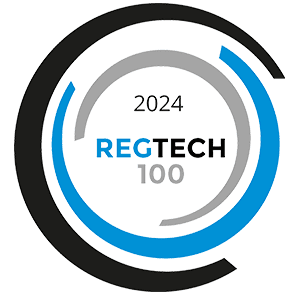Sometimes being a compliance professional can feel almost like being a teacher or grading papers – getting out the proverbial red pen and writing in corrections, suggestions, and revisions.
Even as technology replaces traditional hard-copy reviews, there’s still a process where you’re in control of the piece’s final destiny, determining whether an advertisement is ready to go out to clients and potential clients, or whether you need to send it back for another round of edits and revisions.
Marketing compliance professionals are looking for issues that could create trouble for the firm, and they’re also using higher-level thinking to analyze the content and ensure it’s meeting the spirit of the law as well as the letter.
Compliance professionals should ask themselves these questions to ensure the highest level of success for their reviews, and their relationships with their marketing colleagues.
1. Is all information accurate?
Truthfulness of representation is the highest priority when it comes to promoting your products and services. Untruthful or ambiguous statements can quickly land your firm in hot water with regulators.
Review all content to ensure there are no specific promises being made that would fall outside the realm of accuracy. Your firm should have a written compliance policy that you can also check content against to be certain the guidance being provided is fitting for an advertisement.
2. Is the information consistent with guidance provided by the firm in other content?
When you’re promoting a product or service, you’re probably highlighting it in multiple different pieces of marketing across different channels/platforms.
As a compliance professional, you should review the messaging for every communications channel and ensure it aligns. Your firm can take a different tone or approach on YouTube than on Facebook or a corporate blog, for example, but the key messages related to the product or service should be substantially similar.
If you notice the firm is promoting securities as a wise investment on email marketing but referencing them as “riskier” in a YouTube Q&A session, call attention to it. Is it a difference in opinion and style between two advisors, and does the firm have a set position either way?
3. Are you using the same disclosures you’ve used on other similar pieces?
In line with the previous question, if your content is similar to a previous piece of marketing, then your disclosures should likely be similar too. At the very least, you should have clear documentation as to why you changed or edited a disclosure before applying something different.
The best way to manage this is to maintain a single source library where you can track the disclosures your firm typically uses and can create a versioning history. Then, if there’s a change along the way, you’ll be able to notate when it happened and to ensure everything going forward is consistent.
4. Which trigger words did you see in the content, and how did you address them?
Now we’re getting down to the details and going through the content word-for-word. You’re familiar enough with the trigger terms that require disclosures that you can probably catch all of them on a typical review.
However, there may be times when you’re hastily scanning through a document and miss something. Or, you might assign a task to a team member who’s still learning the ins and outs of your compliance team’s phrasing and preferences.
Using a tool that supports both the content creator and the compliance reviewer can make this process easier. When you have technology that flags keywords and phrases and indicates appropriate disclosures, the initial writer/designer on the marketing team can drop in the disclosures the first time around and reduce back and forth.
Predictive intelligence support makes it easier to complete reviews faster and with greater accuracy, which can make both you and your marketing counterparts happier and more comfortable with your processes.
5. Is the marketing material in the clients’ best interests?
Reg BI requires that broker-dealers work in the best interest of their clients, a higher standard of service than simply providing potentially suitable investments.
This guidance can sound ephemeral. After all, when a marketing piece is in the final stages of review, it’s not necessarily the compliance professional’s responsibility to determine whether the product is in the best interests of the potential client.
However, there are some specific pieces of guidance that should be disclosed in light of this new regulation, including:
-
- Fees associated with a product/service/investment
- Which services are being provided, and whether there are any associated limits
- Any conflicts of interest or any reasons why a firm might have a vested interest in recommending one product or strategy over another
- Whether or not monitoring is provided
Great compliance people are keeping all these things and more in mind as they review content to support their marketing team, and ultimately their firm’s clients.
And, of course, marketers will always love the compliance professional (or software!) that can do some more prosaic review things too – noticing typos or transposed phone numbers fall outside of the compliance professional’s technical purview but can be a big help in avoiding embarrassment or extra costs for the firm.
About Red Oak Compliance
Red Oak Compliance is the global advertising review software of choice in the financial services industry, serving clients with more than $19 trillion in assets under management. Red Oak’s advertising compliance review software offers quick implementation timelines, as well as agile technology that responds to client needs and is 100% Books and Records compliant. Our clients report 35% faster approvals and 70% fewer touches, with many experiencing even better results. Are you ready to minimize risk, reduce costs, and improve efficiency? Contact the Red Oak team to learn how.





